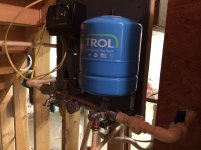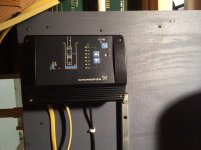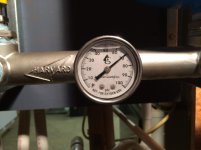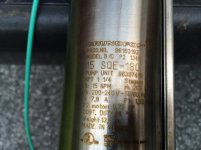Pettrix
Platinum Member
Looking to do a well and I have a question about well pumps. I was told that variable speed pumps are the way to go vs the older single speed on/off pumps. Supposedly the variable speed pump keeps constant pressure but uses less power than the old single speed on/off pumps.
I was told to do with a 1.5 HP - 10 GPM pump.
Any input or advice?
I was told to do with a 1.5 HP - 10 GPM pump.
Any input or advice?




